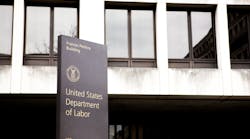Getting caught violating federal wage and hour law can be costly for an employer. Even if you believe you are in the right, you can find yourself in big trouble when U.S. Department of Labor Wage and Hour Division inspectors come to call if your employees aren’t trained and payroll records maintained properly.
With minimum wage and overtime violations, employers are not only liable for the amount of unpaid overtime pay, but also for DOL-imposed “liquidated damages,” which effectively double that amount, plus civil penalties of up to $1,925 per violation. That can climb higher if employees’ attorneys and state labor enforcement agencies join the party.
When it comes to DOL, repeat offenders can expect higher penalties, including possible criminal penalties, warns attorney Philip Miles of the law firm of McQuaide Blasko. “In other words, it’s a whole lot more expensive to not pay and get caught than it would be to just pay the overtime up front.”
That’s bad enough, but while the DOL inspectors are in your offices they can audit your Family and Medical Leave Act practices and examine your handling of Form I-9 immigration eligibility paperwork—a potentially ominous prospect given the government’s new emphasis on combatting illegal immigration.
Some of the things DOL’s current enforcement agenda inspectors will look for include time-rounding practices, interrupted or missed meal breaks, donning and doffing work clothes and equipment, preparatory time and independent contractor and exempt employee misclassifications, according to Robin Sheridan, an attorney with the law firm of Hall Render Killian Heath & Lyman.
DOL can choose to audit your business with or without any notice. The audit can be completely random, but it’s more likely to arise from a current or former employee, a competitor or labor union making a complaint to DOL, or a referral from another federal or state agency, she notes.
How to Prepare
To begin with, make sure to train employees and managers in all of your company’s methods for keeping track of work hours, such as punching in on a time clock and recording breaks, and keep documents regarding that training, Sheridan advises.
Drill your managers on state and federal wage and hour laws so they know how to legally schedule shifts and handle employee requests for time corrections. For example, if changing into a special uniform is integral to the job, the time spent doing it is usually considered “hours worked.”
On a regular basis audit your payroll practices going back two years. Sheridan recommends that you have a lawyer perform the audit so that the results fall under the protective umbrella of confidentiality guaranteed by attorney-client privilege.
It is also important to examine any independent contractor classifications you use. “Calling someone an independent contractor, even in an agreement with the worker, does not necessarily make it true,” Sheridan points out.
Maintaining detailed workplace policies is good, but if your company’s policy is not in compliance with the law, or if employees are not familiar with it, she warns that it can end up hurting more than helping.
When you receive notice of an investigation, respond promptly. Ask the auditor ahead of time about the investigation’s scope and focus, including the documents sought and employees likely to be interviewed. In some cases, DOL may be willing to reschedule a visit so that managers can be available and you have time to gather documents. Be cooperative but don’t be steamrolled, Sheridan stresses. DOL can interview both managers and non-managers, but you should make sure you have a representative present at all manager interviews.
Once again, as is true whenever your business is targeted for any other kind of workplace enforcement, being prepared can make a huge difference to your bottom line and your reputation.
David Sparkman is founding editor of ACWI Advance, the newsletter of the American Chain of Warehouses Inc., as well as a member of the MH&L Editorial Advisory Board.



